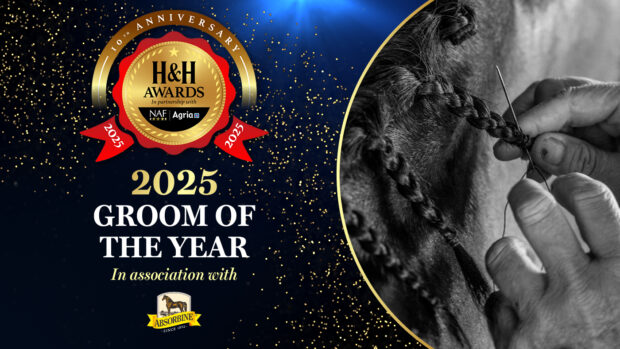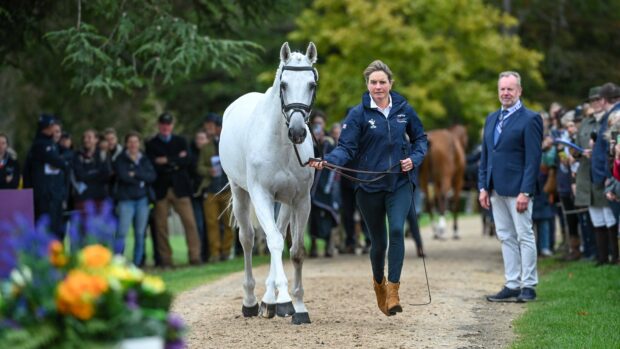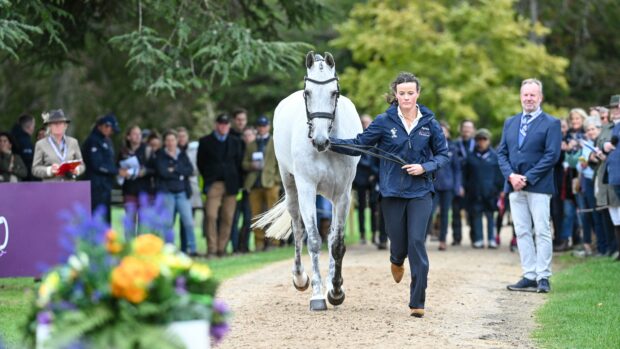“Some employers exploit young people — expecting them to work long hours for little pay and even less instruction. This is not acceptable,” warns the British Horse Society (BHS).
Equestrian employers seek both qualifications and experience when advertising for staff, which encourages many 16-year-olds to leave school and enter positions where they can accumulate both. But finding the right place to start your career can make the difference between success and failure.
Maja Kay left school aged 16 to work on a yard near Epping Forest. “There were six of us looking after 60 horses in exchange for accommodation plus £50 per week,” she says.
Maja later responded to an advert in Horse & Hound for staff at Hyde Park Riding School. She started there on £150 a week, but by gaining experience and qualifications — “you need both,” she says — her responsibilities on the yard have increased.
Now 25, she is assistant manager and combines yard work with 6hr riding a day. Her accommodation is included in her employment package and she earns considerably more than when she started, but says this is counterbalanced by London prices.
Maja opted to achieve her NVQ qualification. “Having dyslexia, I find learning from books difficult and get nervous about exams, especially if I have to talk in front of people, as words can fail me,” she explains. “But it depends what kind of person you are. If you’re confident and a quick learner perhaps the BHS stage exams would be better for you.”
Leah Dunmore, 17, is one of many who now combine the BHS stages and NVQ to get maximum qualifications from her training.
“The NVQ involves more written work but is done at a relaxed pace. The stages are more nerve-racking, but doing both has helped me build confidence; and having both makes me more employable,” says Leah.
Based at Cobham Manor, Kent, Leah’s role involves helping with the riding school, general yard duties, and bringing on youngsters. Having started on £73.80 per week, Leah now earns £90 and receives free tuition.
“I was bored by studying at school, I couldn’t face any more books. I learn more through practical work; if I’m doing something, it’s more likely to stay in my mind. But people are different, some would be better going to college,” she says.
“A huge incentive to take exams is that the more qualifications you have the more you are likely to earn. I’d love to teach and be at least a BHSAI one day. I’d also like to get involved with stud work, as I love dealing with youngsters. Seeing them progress is a buzz, so this is a great place to start.”
But if 16 seems too old to begin your dream of working with horses there is an alternative. On the 14 to 19 government initiative, school pupils can opt to spend time each week on work placements, undertaking a vocational qualification as an alternative to the academic route. Remaining days are spent doing the core curriculum in school. Pupils doing five days vocationally are usually non-academic, not getting on at school or excluded for other reasons.
“If the school supports it, the initiative is great for young people who want to follow a vocational route,” says David Barrett, managing director of the specialist training organisation, KEITS.
Leanne Frazier, 15, is taking part in the scheme. She is an apprentice at Laris Farm riding school and livery yard in Surrey. She receives lectures twice weekly from her employer and once a month goes through her work and achievements with KEITS assessor Nicky Biggs.
“Work-based learning has given Leanne the confidence to get on and succeed,” says Nicky.
Leanne’s responsibilities include caring for horses and preparing them for lessons. She teaches younger children on the lead-rein, and hopes to go on to instruct.
“If working with horses is what you want to do, you should go for it. Being an apprentice at a riding school like this is great experience. You learn more by being hands on; by seeing it all you take so much in,” says Leanne.
Because she would otherwise be in school, Leanne doesn’t earn a wage. But grooms’ earnings are not high and are often subsidised by free livery, accommodation or lessons. According to the BHS, an 18-year-old qualified to stage three will earn around £10,000 a year, and a yard manager up to £16,000.
There are many routes available to school leavers. Consider all your options and make sure you don’t get taken for a ride.
Join Horse & Hound’s NAGS
Membership of the National Association of Grooms and Students (NAGS) is free to all bona fide grooms and students. NAGS is sponsored by training provider KEITS, which offers Modern Apprenticeships, for those aged 16-25, as well as work-based training in equine, animal care and agricultural businesses.
Benefits of being a NAGS member include: Horse & Hound subscription at £1 per copy, £3 discount voucher on a sack of Blue Chip Dynamic, 10% discount on Splash Equestrian equipment and clothing, no P&P charges from Equestrian Vision mail order and eligibility for NAGS-only competitions and offers.
If you are interested in becoming a member, write to: NAGS, Room 2018, Kings Reach Tower, Stamford Street, London SE1 9LS (tel: 020 7261 6993), e-mail: nags@ipcmedia.com, or click here to download an application form in PDF format.
And remember, the club is open to all students, not just those studying for an equine qualification.
|
||
 |
||


 Get up to 19 issues FREE
Get up to 19 issues FREE TO SUBSCRIBE
TO SUBSCRIBE 


